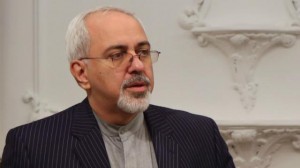 Iranian Foreign Minister Mohammad Javad Zarif and EU foreign policy chief Catherine Ashton are to meet soon to discuss how future talks on Tehranís nuclear energy program should proceed.
Iranian Foreign Minister Mohammad Javad Zarif and EU foreign policy chief Catherine Ashton are to meet soon to discuss how future talks on Tehranís nuclear energy program should proceed.In a telephone conversation on Friday, Zarif and Ashton, the latter representing the P5+1 group (the five permanent members of the UN Security Council plus Germany), agreed to meet on the sidelines of a UN General Assembly session in New York in late September to discuss a resumption of negotiations over Iranís civilian nuclear work.
Iran and the P5+1 group have held several rounds of talks on a range of issues, with the main focus being on Iranís nuclear energy program. The two sides wrapped up their latest round of negotiations on April 6 in the Kazakh city of Almaty. An earlier round had been held in Almaty on February 26-27.
On Thursday, Iran's President Hassan Rouhani officially assigned the countryís Foreign Ministry to take charge of future nuclear talks with the P5+1 group.
In his Friday phone conversation with Ashton, the Iranian foreign minister reaffirmed Tehranís determination to resolve the Western dispute over its nuclear energy program ďif Iran's rights are respected,Ē and if the other side is also resolved to settle the issue.
The top Iranian diplomat said the future negotiations should be based on equality, mutual respect and common interests, noting that ďconstructive interactionĒ with the world based on the three aforementioned principles is the centerpiece of the new Iranian administrationís stance in he future talks.
He reiterated the Iranian nationís right to peaceful nuclear energy, including uranium enrichment, and the removal of international concerns in order to reach consensus.
Zarif further stated that the ďcruel and illegalĒ sanctions have been imposed on the Iranian people only to exert pressure on them.
The Iranian top diplomat, however, stressed that world powers cannot deprive the Iranian nation of its rights through sanctions and pressure.
The United States, Israel and some of their allies falsely claim that Iran is pursuing non-civilian objectives in its nuclear energy program, with the US and the European Union using the unfounded allegation as a pretext to impose illegal sanctions on Iran.
Tehran strongly rejects the claim, maintaining that as a committed signatory to the Non-Proliferation Treaty (NPT) and a member of the International Atomic Energy Agency (IAEA), it has the right to use nuclear technology for peaceful purposes.
Meanwhile, numerous inspections of Iranís nuclear facilities by the IAEA have never found any evidence showing that the Iranian nuclear energy program has been diverted toward non-civilian purposes.
By Press TV
The Iran Project is not responsible for the content of quoted articles.










